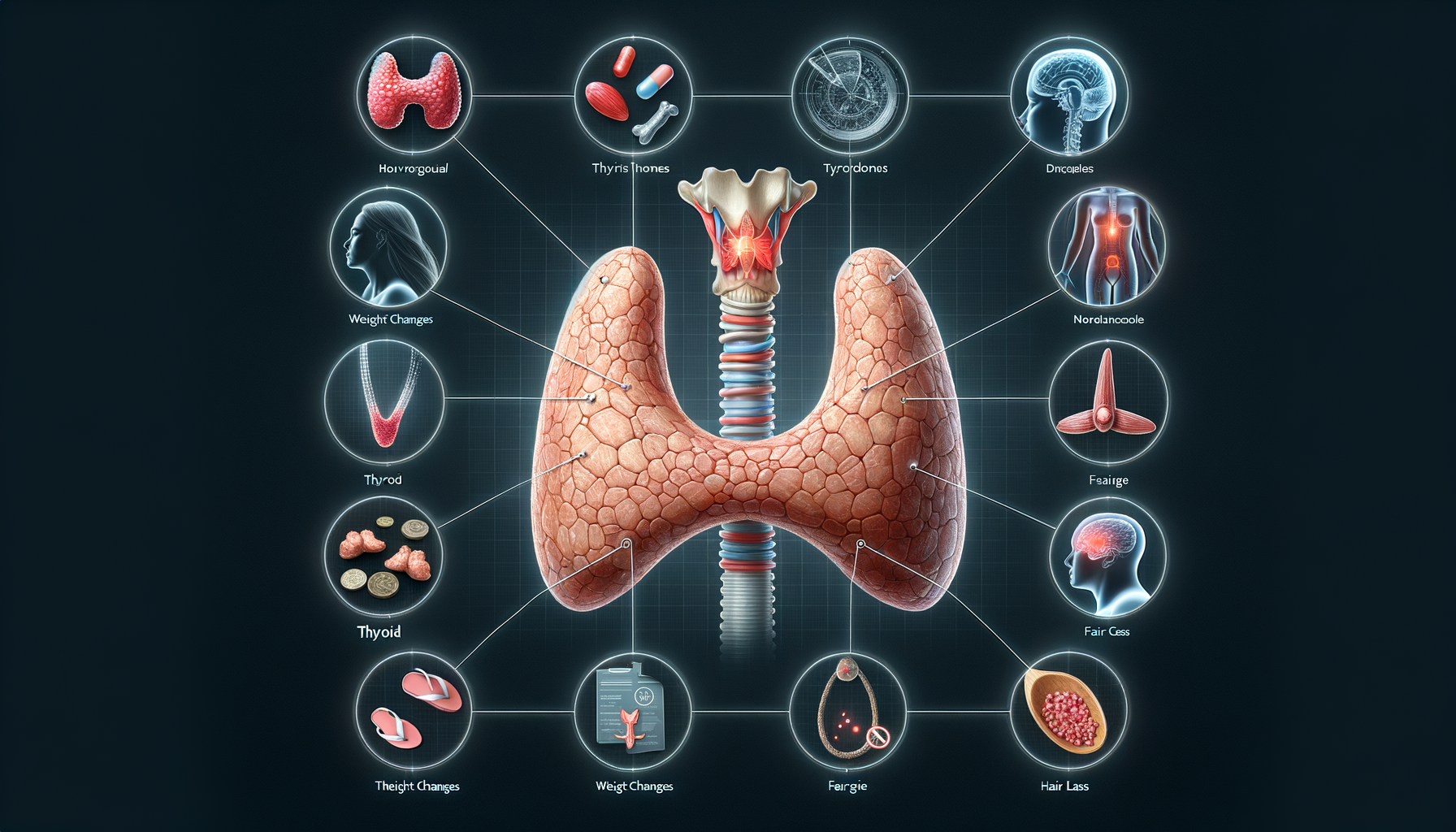
Thyroid Symptoms
Introduction to Thyroid Health
The thyroid gland, a small butterfly-shaped organ located in the neck, plays a vital role in regulating the body’s metabolism. Despite its small size, its influence on overall health is profound, affecting everything from energy levels to heart rate. Understanding the symptoms of thyroid issues is crucial for early detection and management, which can significantly impact quality of life. This article delves into the various symptoms associated with thyroid dysfunction, providing insights that can help individuals recognize potential issues early on.
Common Symptoms of Hypothyroidism
Hypothyroidism occurs when the thyroid gland does not produce enough thyroid hormones. This condition is more prevalent in women and can lead to a variety of symptoms. Common signs include:
- Fatigue and sluggishness
- Weight gain despite a normal diet
- Cold intolerance
- Dry skin and hair
- Constipation
These symptoms can often be subtle and mistaken for other health issues, which is why awareness is key. For instance, fatigue is a common complaint, but when coupled with other symptoms like weight gain and cold intolerance, it may indicate an underactive thyroid. Early diagnosis through blood tests can lead to effective management with hormone replacement therapy, improving the patient’s overall well-being.
Recognizing Hyperthyroidism Symptoms
In contrast to hypothyroidism, hyperthyroidism is characterized by an overproduction of thyroid hormones. This can accelerate the body’s metabolism, leading to symptoms such as:
- Unexplained weight loss
- Increased heart rate or palpitations
- Nervousness or irritability
- Heat intolerance
- Increased appetite
These symptoms can significantly impact daily life, causing discomfort and anxiety. For example, an increased heart rate may lead to palpitations, making it difficult to relax or sleep. Recognizing these signs early can prompt individuals to seek medical advice, where treatments such as medication, radioactive iodine, or surgery can be considered to manage the condition effectively.
Thyroid Nodules and Their Symptoms
Thyroid nodules are lumps that can form within the thyroid gland. While most nodules are benign, some can be cancerous, making it important to monitor them closely. Symptoms associated with thyroid nodules include:
- Swelling in the neck
- Difficulty swallowing or breathing
- Hoarseness or voice changes
- Neck pain
These symptoms can sometimes be overlooked, as they may develop gradually. However, any noticeable changes in the neck or persistent symptoms should be evaluated by a healthcare professional. Ultrasound and biopsy are common diagnostic tools used to assess the nature of the nodules. Early detection and treatment can prevent complications and ensure better health outcomes.
Conclusion: Importance of Awareness and Early Detection
Thyroid conditions are common and can significantly affect an individual’s health and quality of life. Recognizing the symptoms early can lead to timely diagnosis and effective management. It is essential for individuals to be aware of the potential signs of thyroid dysfunction, as early intervention can prevent complications and improve life quality. Regular check-ups and open communication with healthcare providers are crucial steps in maintaining thyroid health. By staying informed and vigilant, individuals can take proactive steps in managing their thyroid health effectively.


